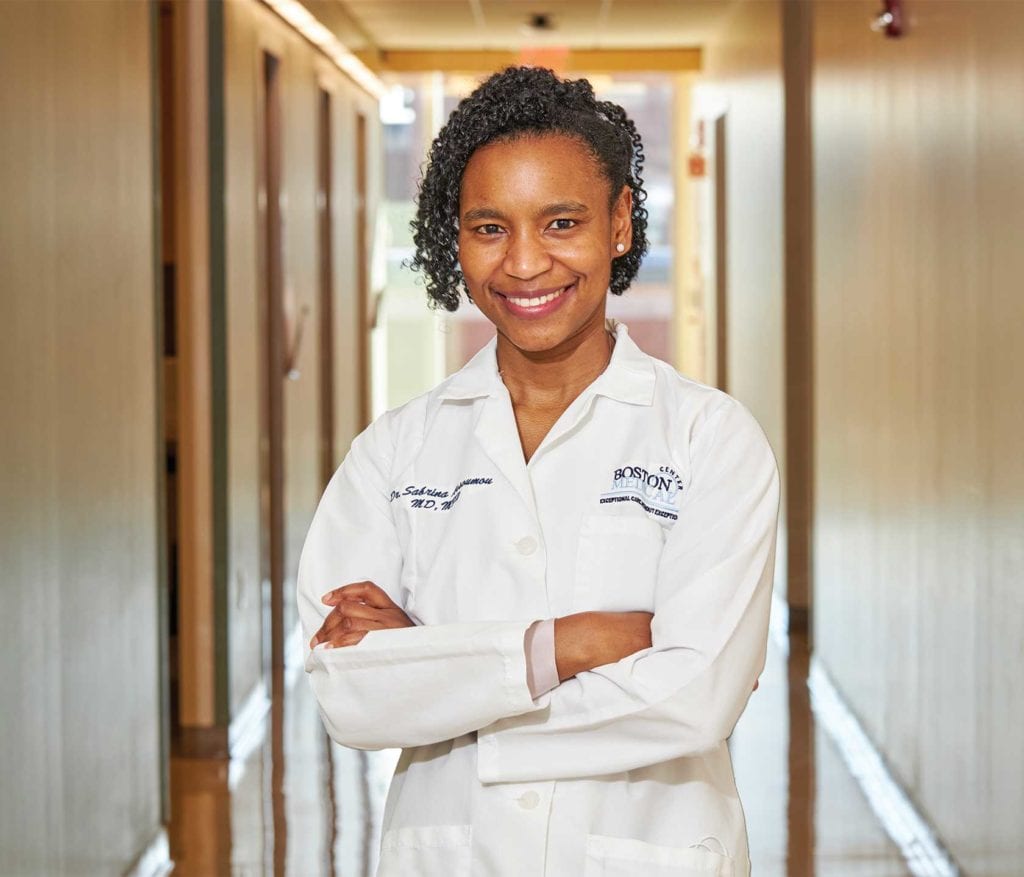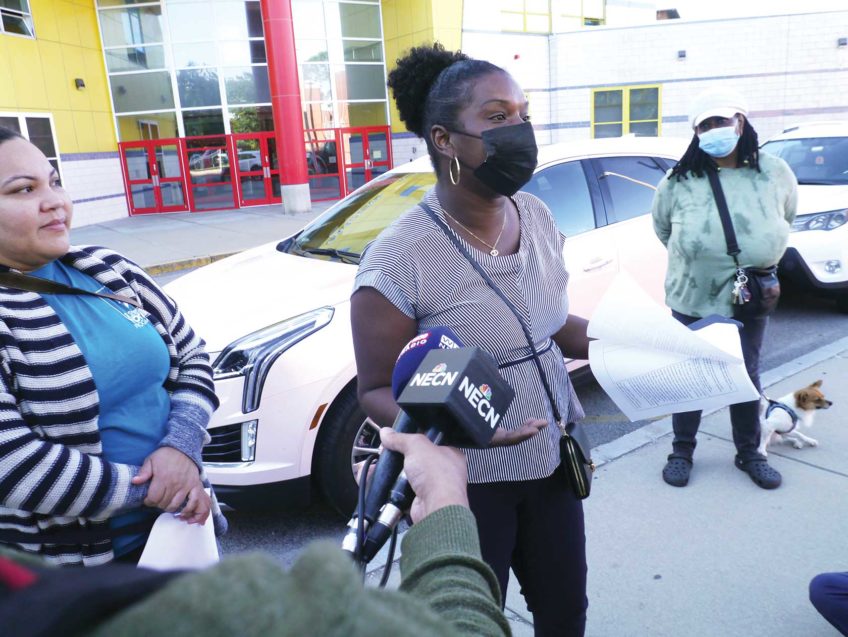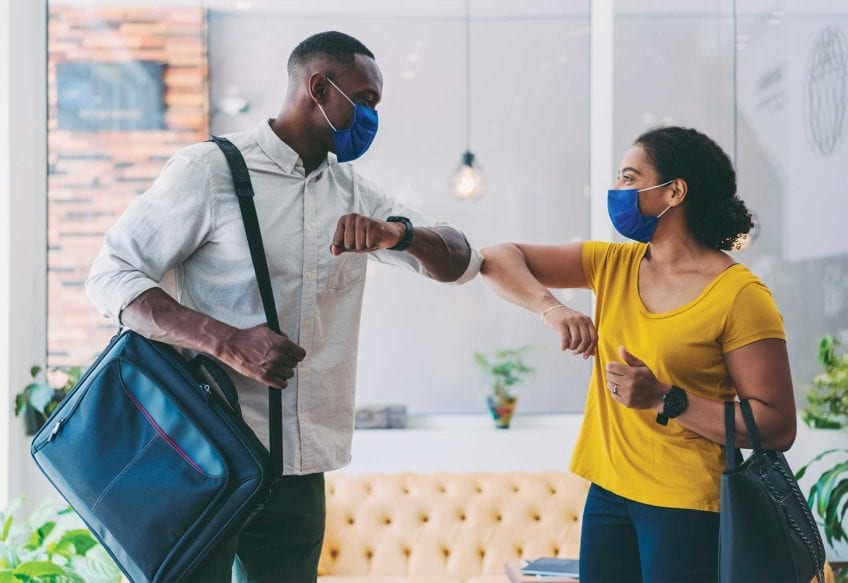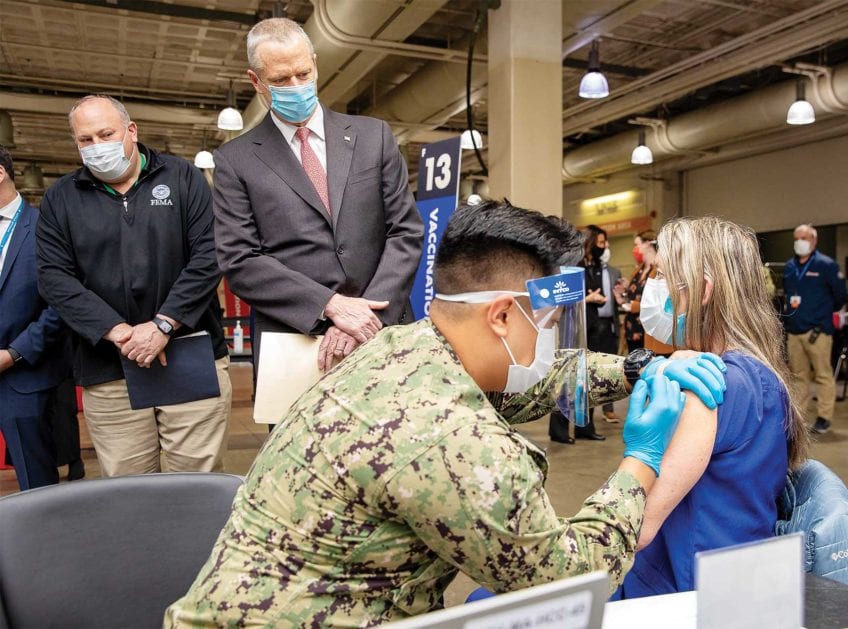
They call her the “vaccine evangelist.” It’s a moniker that Dr. Sabrina Assoumou bears with pride. Assoumou is an infectious disease physician at Boston Medical Center and assistant professor of medicine at Boston University School of Medicine.
Misperceptions about COVID-19 abound. Some people — especially people of color — are rejecting the vaccine. Assoumou wants to set the record straight. She is quick to point out that the team that developed one of the vaccines was led by a Black scientist. Kizzmekia Corbett, PhD is a research fellow and the lead scientist for coronavirus vaccine research for the National Institute of Health. In addition, across the country, people of color were heavily recruited to participate in clinical trials for the vaccine.
As commonly thought, coronavirus is not a new disease. Actually, we’ve been exposed to it our entire lives. We just didn’t know it. We’ve all experienced the runny nose, cough and sore throat of the common cold. It’s more of a nuisance than a threat.
Every once in a while, however, a new version emerges, which brings more disease and deaths. This country was spared the invasion of Severe Acute Respiratory Syndrome (SARS) in 2003 and Middle Eastern Respiratory System (MERS) nine years later. Both are coronaviruses that resulted in 774 and 886 deaths, respectively, but none in this country.
In 2019 a new and more dangerous coronavirus emerged called COVID-19, an acronym for coronavirus disease of 2019. This virus is even more dangerous than SARS and MERS. Since first recognized two years ago, it has infected more than 129 million people worldwide and claimed almost 3 million victims. In the United States alone, that number exceeds 552,000.
Unlike previous disease outbreaks that were generally confined to a specific geographical area, this virus respects no boundaries. The World Health Organization declared COVID-19 a pandemic, which implies world-wide impact.
When a vaccine was developed, Assoumou admitted she jumped for joy when it proved to be 95% effective during clinical trials. “We did not expect such a high percentage,” she explained. In comparison the yearly flu shot is 40% to 60% effective.
People are fearful about not only the rapidity of the development of the vaccine but also the novelty of its design. Neither should be a concern, she said. First of all, it really isn’t a new development. In some cases, a vaccine uses a weakened version of the virus. Moderna and Pfizer instead used messenger RNA, or mRNA that delivers a bit of genetic code to cells when injected. This in effect develops a recipe of sorts to instruct the cells to replicate a small piece of the spike protein that’s characteristic of the coronavirus. The body recognizes that the spike protein should not be there and sets about to destroy it. The mRNA does not remain in the body. It does not change the cell’s DNA.
The concept is not new, as commonly thought. This method has been studied for more than a decade particularly in light of the emergence of the SARS and MERS viruses. “No corners were cut,” Assoumou emphasized. Both vaccines went through the three-phase process required for clinical development.
The speed in development resulted because of its world-wide impact. “This country was paralyzed, she explained. “We mobilized everything to make this work. COVID was everywhere.”
The advantage of the mRNA vaccine is that it can be easily tweaked — somewhat like “plug and play.” Revision of the vaccine can more quickly be rolled out. Modification may be necessary because of the emergence of variants of the virus.
Assoumou recognizes people’s hesitancy to be vaccinated. Historically, rumors of new vaccines are not uncommon. A British doctor years ago falsely linked the MMR (measles, mumps, rubella) vaccine to autism. Although eventually retracted, the myth has had a lasting impact. The cases of measles nationally have steadily risen. There were 1282 cases in 2019.
Although a vaccine against HPV was developed in 2006, myths regarding its safety have resulted in only a 50% compliance in adolescents. Yet, HPV causes 91% of the cases of cervical cancer.
Reliance on misinformation on COVID-19 is more critical, however, given the high death rate.
We know that the vaccine is safe. We also know that if a person does become infected, the vaccine can prevent serious illness, hospitalization and death from COVID-19. But much is still unknown. We do not know who or how it will strike. Some people have no symptoms at all; some need to be hospitalized; some do not survive. Although women are afflicted more, the death rate is higher among men. People with chronic diseases, such as asthma, diabetes and heart disease, suffer more serious complications. The incidence of these diseases is significantly higher in Black people.
All the more reason to get the shots, Assoumou insisted. “Get vaccinated,” she said. “When you do, the virus cannot spread. It cannot mutate.”







